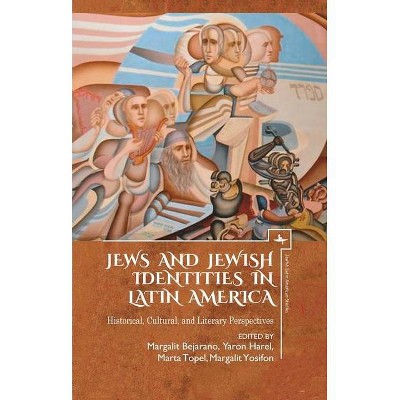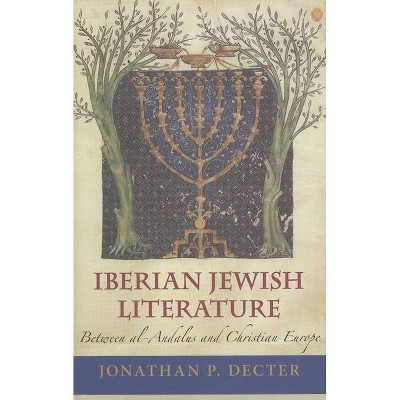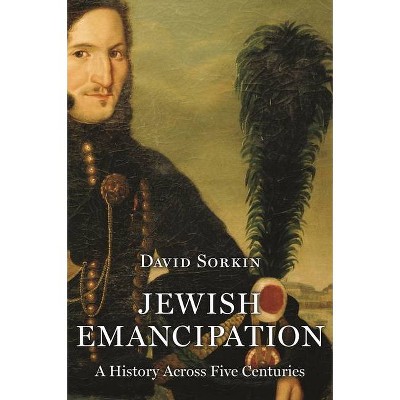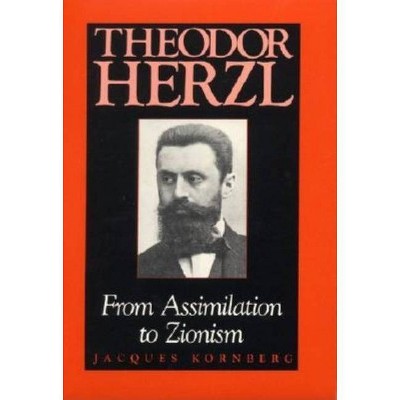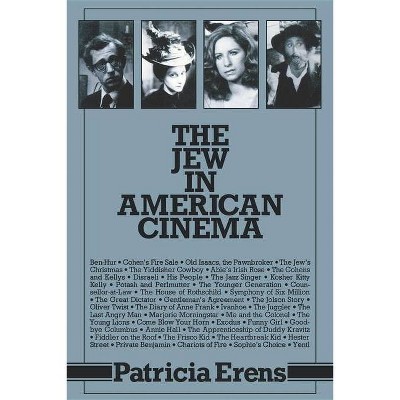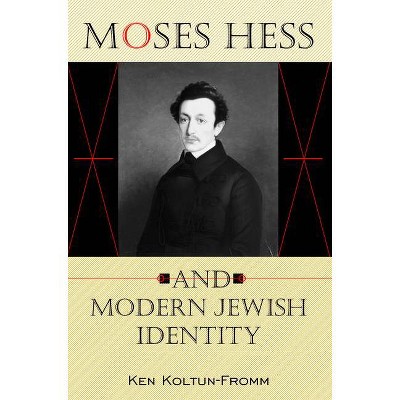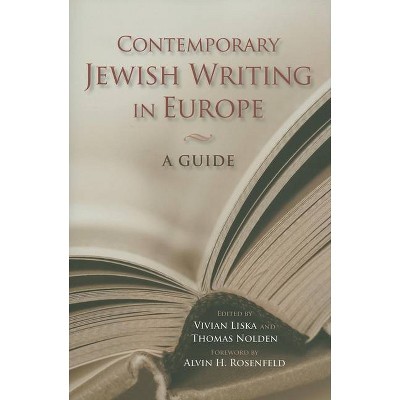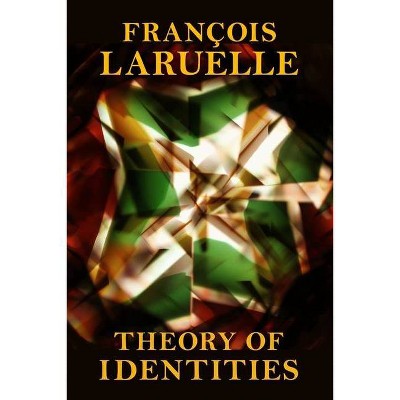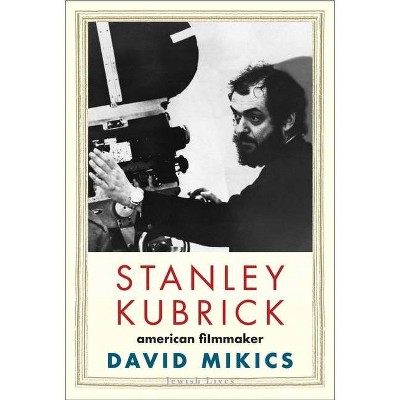Affiliated Identities in Jewish American Literature - Abridged by David Hadar (Hardcover)
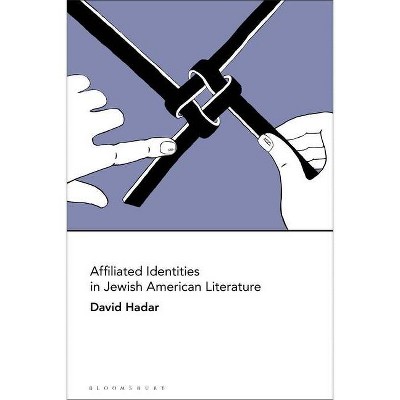
Similar Products
Products of same category from the store
AllProduct info
<p/><br></br><p><b> About the Book </b></p></br></br>"Examining connections between Jewish American authors and Jewish authors elsewhere in America, Europe, and Israel, this book explores a concept of authorial affiliation that emphasizes how writers intentionally highlight their connections with other writers. Starting with Philip Roth as a catalyst, David Hadar reveals a larger network of authors involved in formations of Jewish American literary identity, including among others Cynthia Ozick, Saul Bellow, Nicole Krauss, and Nathan Englander. Whether it's incorporating other writers into fictional work as characters, interviewing them, publishing critical essays about them, or invoking them in paratext or publicity, writers use a variety of methods to forge public personas, craft their own identities as artists, and infuse their art with meaningful cultural associations. Hadar's analysis deepens our understanding of Jewish American and Israeli literature, positioning them in de-centered relation with one another as well as with European writing. The result is a thought-provoking challenge of the concept of homeland, recasting each of these literatures as diasporic and questioning the assumption that Jewish languages necessarily claim centrality in Jewish literatures"--<p/><br></br><p><b> Book Synopsis </b></p></br></br>Focusing on relationships between Jewish American authors and Jewish authors elsewhere in America, Europe, and Israel, this book explores the phenomenon of authorial affiliation: the ways in which writers intentionally highlight and perform their connections with other writers. Starting with Philip Roth as an entry point and recurring example, David Hadar reveals a larger network of authors involved in formations of Jewish American literary identity, including among others Cynthia Ozick, Saul Bellow, Nicole Krauss, and Nathan Englander. He also shows how Israeli writers such as Sayed Kashua perform their own identities through connections to Jewish Americans.<br/><br/>Whether by incorporating other writers into fictional work as characters, interviewing them, publishing critical essays about them, or invoking them in paratext or publicity, writers use a variety of methods to forge public personas, craft their own identities as artists, and infuse their art with meaningful cultural associations. Hadar's analysis deepens our understanding of Jewish American and Israeli literature, positioning them in decentered relation with one another as well as with European writing. The result is a thought-provoking challenge to the concept of homeland that recasts each of these literary traditions as diasporic and questions the oft-assumed centrality of Hebrew and Yiddish to global Jewish literature. In the process, Hadar offers an approach to studying authorial identity-building relevant beyond the field of Jewish literature.<p/><br></br><p><b> Review Quotes </b></p></br></br><br>Guided by an appreciation for his own literary affiliations, David Hadar redefines Jewish literariness with a focus on authorial bonds and influences. Grounded in sociology, post-structuralism, philosophy, and literary analysis, this work not only challenges our assumptions about Jewish literature and Jewish authorial identity, but also about the nature of affiliations and the role of networking so crucial in determining the value of a work. Featuring engaging and nuanced readings of such authors as Emma Lazarus, Philip Roth, Nathan Englander, Nicole Krauss, and Sayed Kashua, <i>Affiliated Identities</i>underscores the need for transnational and translingual approaches to the study of literature in the 21st century and beyond.<br/>Aimee Pozorski, Professor and Director of English Graduate Studies, Central Connecticut State University, USA, and co-Executive Editor of Philip Roth Studies<br><br>In the spirit of current reevaluations of Jewish literature that go beyond identity as its touchstone, David Hadar demonstrates how writers influence their reception by fashioning literary networks. <i>Affiliated Identities in Jewish American Literature</i> sheds light on how authors themselves generate maps of Jewish writing not only through paratexts, but also through artistic strategies of affiliation. Hadar tells a fascinating story about how Jewish American authors bond with each other and with authors across national, linguistic, ethnic, and religious boundaries in order to create nodes of Jewish writing that call for reimagining Jewish literature. By extending recent discussions on the sociology of literature to Jewish American fiction, <i>Affiliated Identities</i> enriches the field with fresh and original readings of works by Philip Roth and Nicole Krauss among other contemporary writers, as well as calling our attention to newly formed networks between American and Israeli authors.<br/>Hana Wirth-Nesher, Professor Emerita of English and American Studies, Tel Aviv University, Israel, and author of Call It English: The Languages of Jewish American Literature (2006) and editor of The Cambridge History of Jewish American Literature (2015)<br><p/><br></br><p><b> About the Author </b></p></br></br><b>David Hadar</b> is Associate Lecturer of English Language and Literature at Beit Berl College, Israel.
Price History
Price Archive shows prices from various stores, lets you see history and find the cheapest. There is no actual sale on the website. For all support, inquiry and suggestion messagescommunication@pricearchive.us
